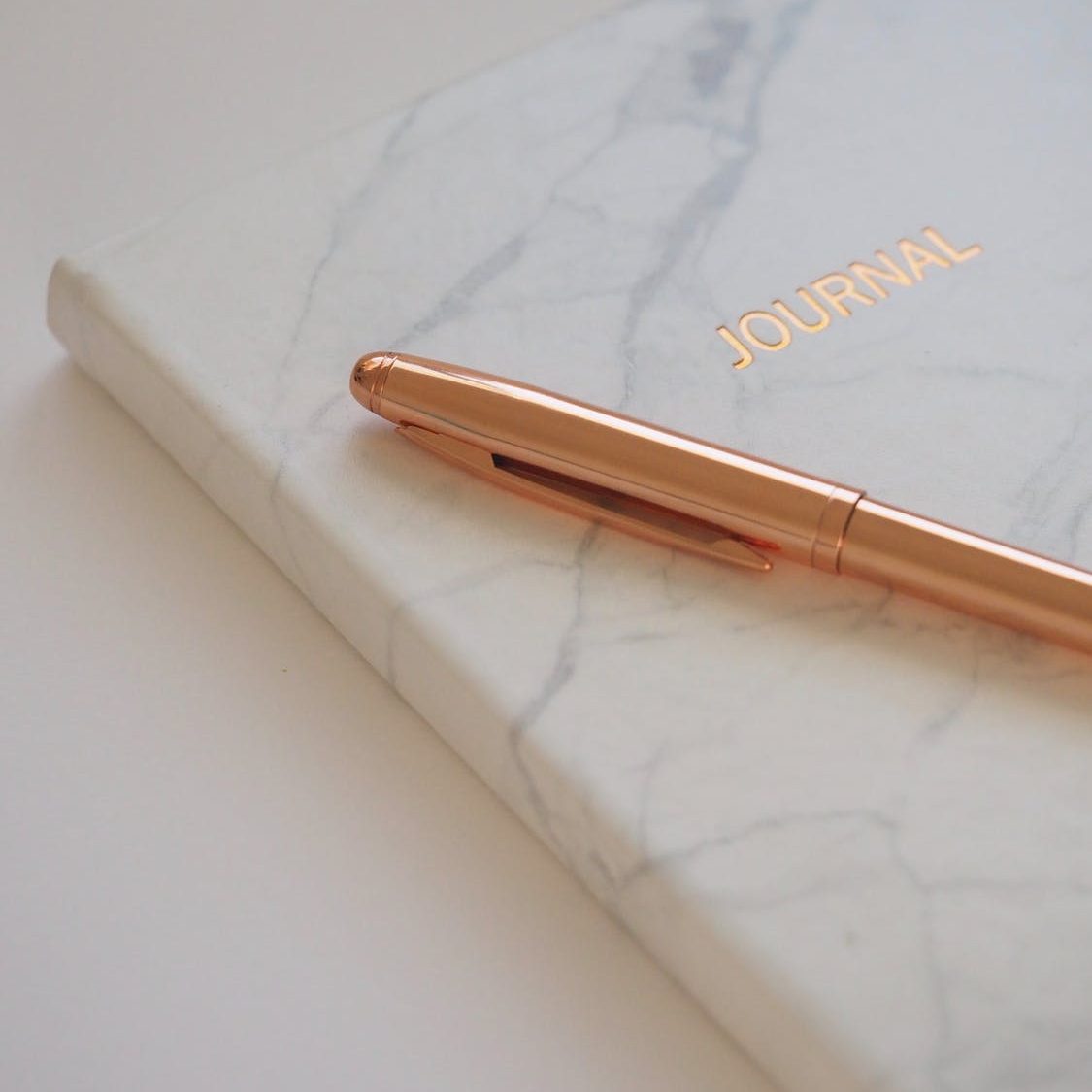
Did you write in a diary as a kid? I did, until my little sister found the key and read it all, ugh. I must have felt so violated I stopped. Kind of sad to think about in hindsight, but let’s just say, my sister and I have come a long way since!:) And so has my journaling practice.
Over time, journaling has helped me develop a stronger awareness of my own feelings by helping me process events & feelings after the fact. As much as I try to not dwell in the past, sometimes, we gotta go back to move forward. Journaling also helps to build clarity, vision and hope — whatever your reason for starting a journaling practice, here’s the process I recommend trying:
- Choose a time of day you’d like to start your practice and how frequently you will do it. This is totally personal preference and you can change it along the way, but choose the path of least resistance to start. Maybe it’s after dinner? Or a 15-minute window in the morning before you shower? Replace browsing the news with taking a little time for yourself? Replacing an activity that no longer brings you joy with journaling, or “piggy-backing” off of an existing habit makes the transition easier. Commit to the # of days per week that feels reasonable for you.
- Choose a ruled journal + pen (a good one, you’ll enjoy writing with). I am a “Le Pen” addict! I love Moleskine journals, but I go through them so quickly that I end up picking out cute ones from Target, Paper Source or Walgreens (journals are so trendy right now, so go have fun choosing something you like). A laptop will work too, it’s sometimes better because a lot of us type much faster than we write, but you’ll have to commit to closing all distractions. Create an ongoing word doc or start a new folder in an app like Evernote.
(Side note: I’m not against journals with prompts, they can really help people to get started, but I do think, for type A people, they can easily become more of a “check the box” type process vs. a cathartic way of creatively expressing yourself or actually connecting with your feelings, so just be mindful of that!) - Get comfortable — surroundings are everything. Find a quiet space, away from everything — if you live in a smaller space with a S.O. or family, invest in some noise-canceling headphones to help you totally zone out (there are a range of price options on Amazon).
- Breathe & get present in your body — take a few (4–5) big deep belly breaths. Inhale calm, exhale commotion. What are you feeling, right now? Do a body scan… start with your toes and end at the top of your head. I can’t emphasize this step enough — you need to connect with your feelings in order to really benefit from the journaling practice. This step alone takes practice, so be kind and patient with yourself.
- Prompts — now it’s time to write. Depending on what resonates most with you on a given day, here are some ideas to help you start.
- What are you feeling right now, in this moment?
- What is causing me anxiety, overwhelm or stress? What can I do to put an end to it?
- What happened today that was joyful, fun or really felt good?
- What am I really sick of happening over and over again in my life?
- Why do I feel so bored/stressed/angry (insert any emotion) at work? What can I do to change it?
- I feel like my days are all really similar, how can I change things up a bit?
- I know there’s a bigger idea in me, somewhere, but what is it?
- What’s keeping me from making change in my life?
Enjoy your journaling practice – this is all about feeling your emotions, becoming more self-aware of what brings you joy, and letting go of the things in life that are no longer serving you. Happy journaling!

